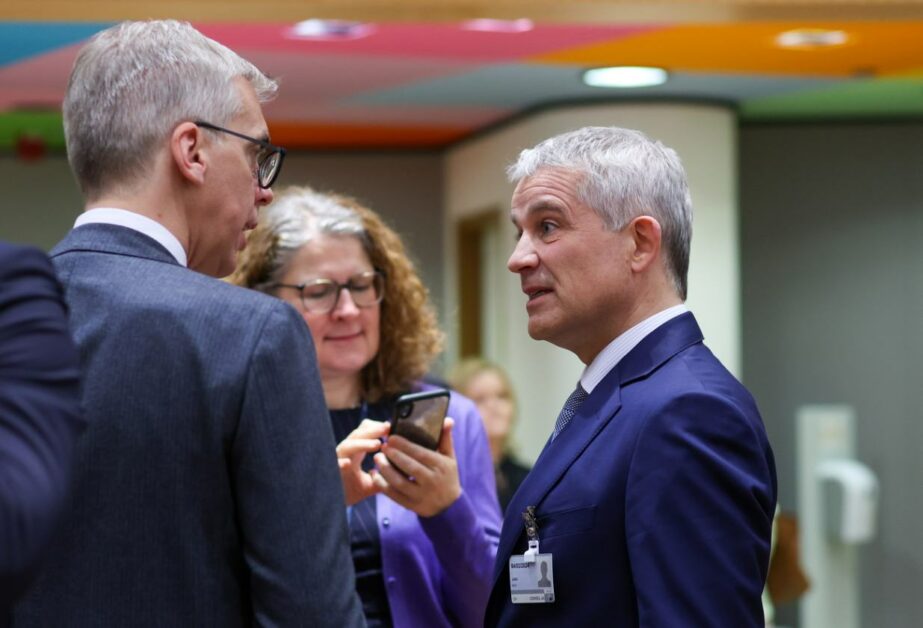Sa., März 9th 2024
Switzerland seeks to solidify its position within the EU internal market through a comprehensive negotiation strategy addressing key sectors and concerns.

Switzerland has had agreements with the EU since 1972. These have been regularly amended, although not all negotiations have resulted in a treaty. The Federal Council last broke off negotiations on a framework agreement in 2021. Exploratory talks were then initiated.
The Federal Council has approved a mandate for negotiations with the European Union. Without the agreement, Switzerland’s access to the EU internal market threatens to erode further. Below are the most important and controversial points of the upcoming negotiations:
The Federal Council and the European Commission agreed on a “Common Understanding” last fall. This document forms a common basis. A so-called package approach with agreements in various sectors is being pursued.
Based on this, the Federal Council drew up a draft negotiating mandate, which has now been adapted following consultation with domestic interest groups.
In addition to the Federal Council, the EU member states must also approve a mandate before negotiations can begin. As soon as this happens, the talks can begin. The Federal Council expects negotiations to start in March. According to the agreement, both negotiating parties have set themselves the goal of concluding the negotiations by the end of 2024.
Patric Franzen will lead the negotiations for Switzerland as chief negotiator. He is Head of the Europe Division of the Federal Department of Foreign Affairs (FDFA) and Deputy State Secretary. According to Franzen, Richard Szostak will lead the negotiations on the European side. The diplomat was already involved in the Brexit negotiations for the EU.
The aim of an electricity agreement is to ensure Switzerland’s security of supply and grid stability. The players in the Swiss electricity market hope that an agreement will enable them to participate in the energy markets on an equal footing.
The Federal Council would like to negotiate a complete opening of the electricity market, which would allow small end consumers to continue to enjoy a regulated basic supply.
The Federal Council is aiming for full application of the Agreement on the Free Movement of Persons. Criticism has been voiced on two points in particular: on the one hand, the social partners fear that wage dumping by foreign workers could occur and, on the other, the Conference of Cantonal Governments (KDK) is calling for a protective mechanism against possible abuse of the social security system.
In order to make the agreements sustainable, the dynamic adoption of EU law is being negotiated. Switzerland could be involved in the drafting of EU law that affects it and would remain sovereign in its adoption. The criticism is that non-adoption could lead to sanctions and Switzerland would therefore not be fully sovereign.
In the event of a dispute between Switzerland and the EU, a political committee of both parties should seek a solution. If the dispute concerns the interpretation of EU law, the European Court of Justice (ECJ) should be consulted. Its interpretation would be binding for the resolution of the dispute. The SVP refers to this as “foreign judges”.
Today, Switzerland is dependent on transitional solutions to allow Swiss trains to travel abroad. In order to achieve a long-term solution, the institutional issues should be clarified in the overland transport agreement. This also means opening up the market to foreign railroad companies, the national government states. The quality of public transport in Switzerland must not be compromised in the process.
In order not to distort economic competition, state aid should be restricted. State aid includes subsidies, but also other financial benefits such as subsidized loans or tax concessions. The sectors affected would be air and land transport and the electricity market.
Switzerland should once again be able to participate in the Union programs in the areas of innovation, research and education. It has been excluded since 2021. With the start of negotiations, talks are to begin so that Swiss universities and higher education institutions can participate in the Horizon research program from 2025.
Switzerland should make a regular financial contribution to selected EU member states. This would enable Switzerland to help reduce economic and social disparities in the EU. The amount and regularity of the payments are part of the negotiations.
©Keystone/SDA
